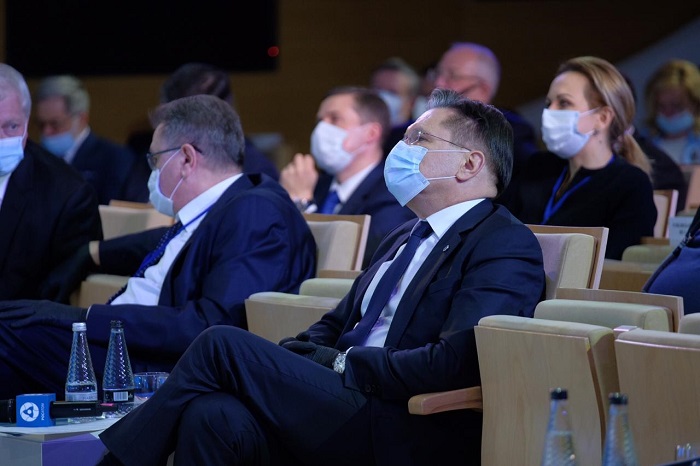On February 9, 2021, in Moscow a formal meeting “Science in the RTTN Complex Program” (“Development of Engineering, Technology and Research in the Use of Atomic Energy until 2024”) was held in the ROSATOM’s Headquarters. The meeting was dedicated to the Russian Science Day.
Representatives of ROSATOM, NRC Kurchatov Institute, institutes of the Russian Academy of Sciences, Ministry of Education and Science of Russia, Joint Institute for Nuclear Research and other took part in the formal meeting.

Addressing the meeting, Director General of ROSATOM Aleksei Likhachov said: “The entire nuclear industry originates from the Russian Academy of Sciences. In this sense, RAS is the cradle for nuclear industry, nuclear knowledge and nuclear science.” He reminded that in spite of pandemic and related decisions on reduction of spending from the federal budget, in April, President of Russia Vladimir Putin signed the decree on the development of the national program “Development of Engineering, Technology and Research in the Use of Atomic Energy until 2024”. “In this decree the President gave the program all attributes and all instruments of a national project,” Aleksei Likhachov stressed.
The work to develop and approve this program lasted for the year and December 24, 2020 Chairman of the Government Mikhail Mishustin signed this document approving essential parameters, projects and budget indicators of this program. Now, the RTTN Program is considered as a number of subgroups. This is needed to include its constituents and stages in the overall Joint Strategy of the Russian Federation until 2030, which is being prepared now by order of the Head of the Russian Government. Aleksei Likhachov focused the meeting on the important role of both fundamental and applied science beginning from first ideas and moments of becoming of the nuclear industry. “All that has been implemented in the defense area and nuclear power and nuclear technologies is, in the first place, the brainchild of Russian and Soviet scientists. It is the tradition which we must keep during upcoming decades,” he said.
The papers were on the structure and scientific problems of federal projects of RTTN, development of technologies of the double-component nuclear power with the closed nuclear fuel cycle, and issues related to creation of state-of-the-art experimental and bench equipment. One of the presentations dealt with improvement of small modular reactor technology (SMR).
